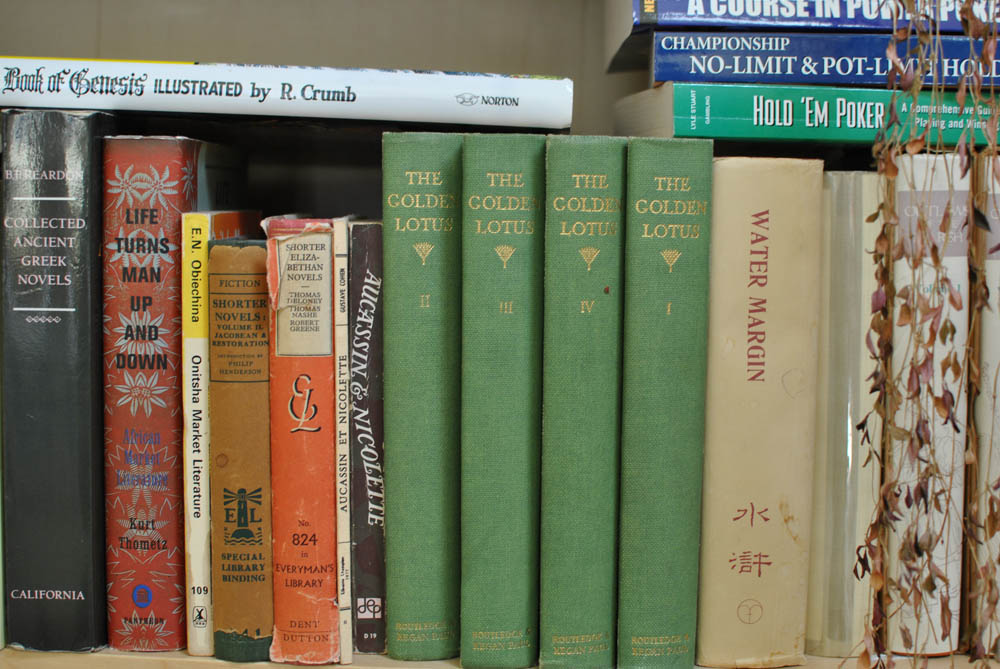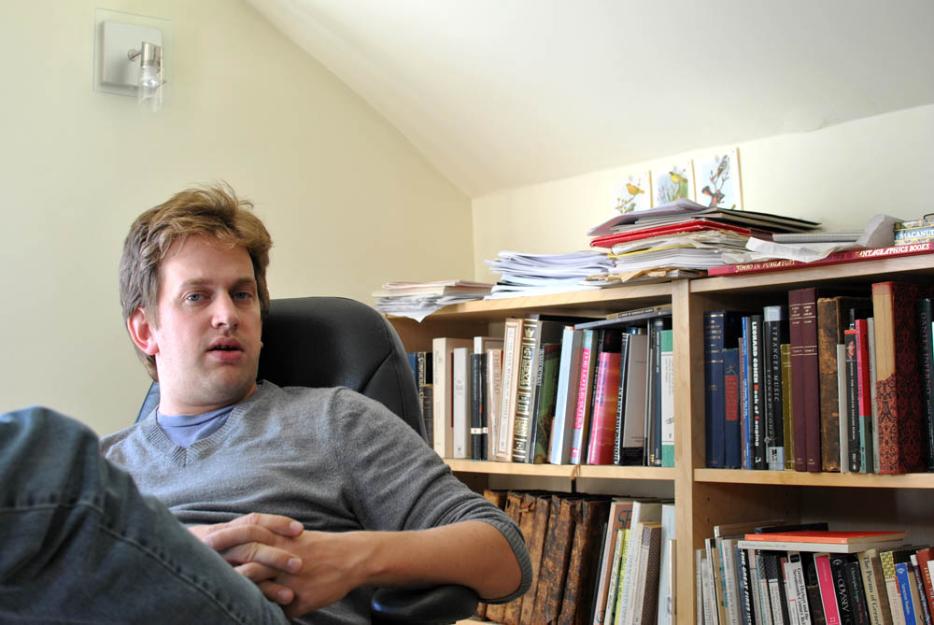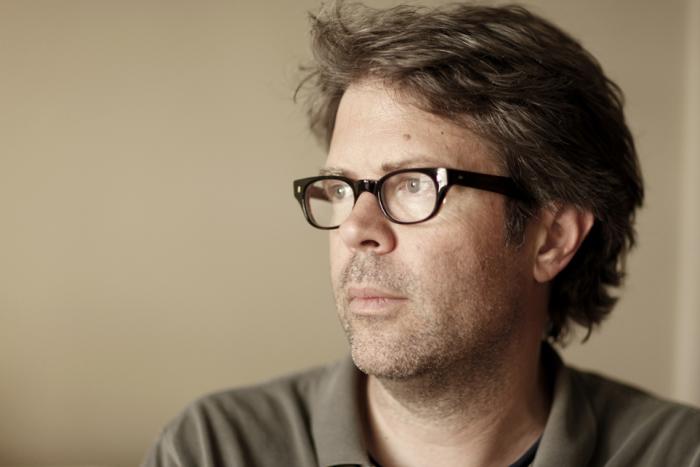Shelf Esteem is a weekly measure of the books on the shelves of writers, editors, and other word lovers. This week’s shelf belongs to Stephen Marche, whose latest novel Love and the Mess We're In has just been released by Gasperau Press. His books are arranged in several short book cases around the perimeter of his austere attic office, the ceiling of which slopes down around his desk. As told to Emily M. Keeler.
I have exactly the wrong number of books. There’s only two ways to go: if you want a working library, like one where you don't need to go to Robarts all the time for whatever you don’t have, then you need probably five to ten thousand books. Somewhere around there. Whereas I have two thousand. Which is just enough to be an immense pain to move, but not enough that I have everything that I look at on a regular basis. So it's kind of irritating. But right now, if a book comes in, a book goes out. There’s no, “Oh look, I have another 300 books this year.” No. I had to move out my Wodehouses. I had like, 80, so I put them in a box. And I had to move the Choose Your Own Adventure books, too. I had around 50 of those. If something stays, then something else has to go.
My wife and I made the decision to split things into fiction, nonfiction, drama and poetry. So the nonfiction’s downstairs, and I’ve got a shelf here mostly for theatre stuff. I did a PhD. in early modern drama, so I have a lot of, for example, Philip Massinger. Nobody knows who he is, but this particular volume was actually owned by Walter Greg, who's one of the truly great bibliographers. It has these weird little—I forget the name of them, but there are these weird printer’s marks. They’re incredibly odd, but beautiful. It’s just decorative, to fill up space, but here they’ve done a thing where they’re all interspersed within the text. I’ve also got an anthology of British drama from the 19th century that I had to read for my comps. They’re terrible, actually. Though it does you good to remember that most of literature is actually like, “Three Weeks After Marriage: A Farce” by Arthur Murray, just like, some bullshit that no one will ever fucking look at again.
While the Massinger is something like 200-years-old, the only really valuable book I have is Pseudodoxia Epidemica. Do you know Thomas Browne? He’s my favorite English prose writer. He wrote this book in 1646 that’s a collection of urban legends, and what’s wrong with them. Some day, when I’m really rich, I’m going to buy all of his first editions. But I’m not even close to that yet.
When I was a kid, I bought a lot of these old books at university book sales. And they were just incredibly great, because it was before the booksellers on eBay, before people could figure out the value of things instantly. Like, I bought this Bible from 1640 there for, I think, $20. It’s not wood paper, it’s cloth paper. Because it doesn’t have a title page, it’s not actually worth any money, but I just love it. It has the signature of everyone whose owned it in it. It’s the coolest thing, you can see that it has actual holes from real book worms in it. It’s an actual worm eaten book. There’s something about that I just find very beautiful.

Oh, and I’ve got Martin Tupper. You know Martin Tupper? He’s in Banvard’s Folly, which is a great nonfiction book about failures. The great failures of literature. This guy was easily the biggest poet in the world. In 1890, if you went to any bookstore in the world you’d see hundreds of copies of Tupper. He developed this interesting biblical style that really was a prototype for Walt Whitman. Walt Whitman basically got his style from Tupper. There are posters that are like, “The Greatest Poets of All Time,” and it’ll be like Virgil-Shakespeare-Tupper. He was as absolutely as big as they got, and he just completely fell into obscurity. Fascinating, the turns of fame. He was bigger than Mark Twain! That’s a great book, Banvard’s Folly.
I am really a creature of books. That’s what I think about. Even though that’s probably absurd, to continue thinking of them. We’re probably all living in a world where we should only be writing little pieces, but I still think entirely in terms of books.






